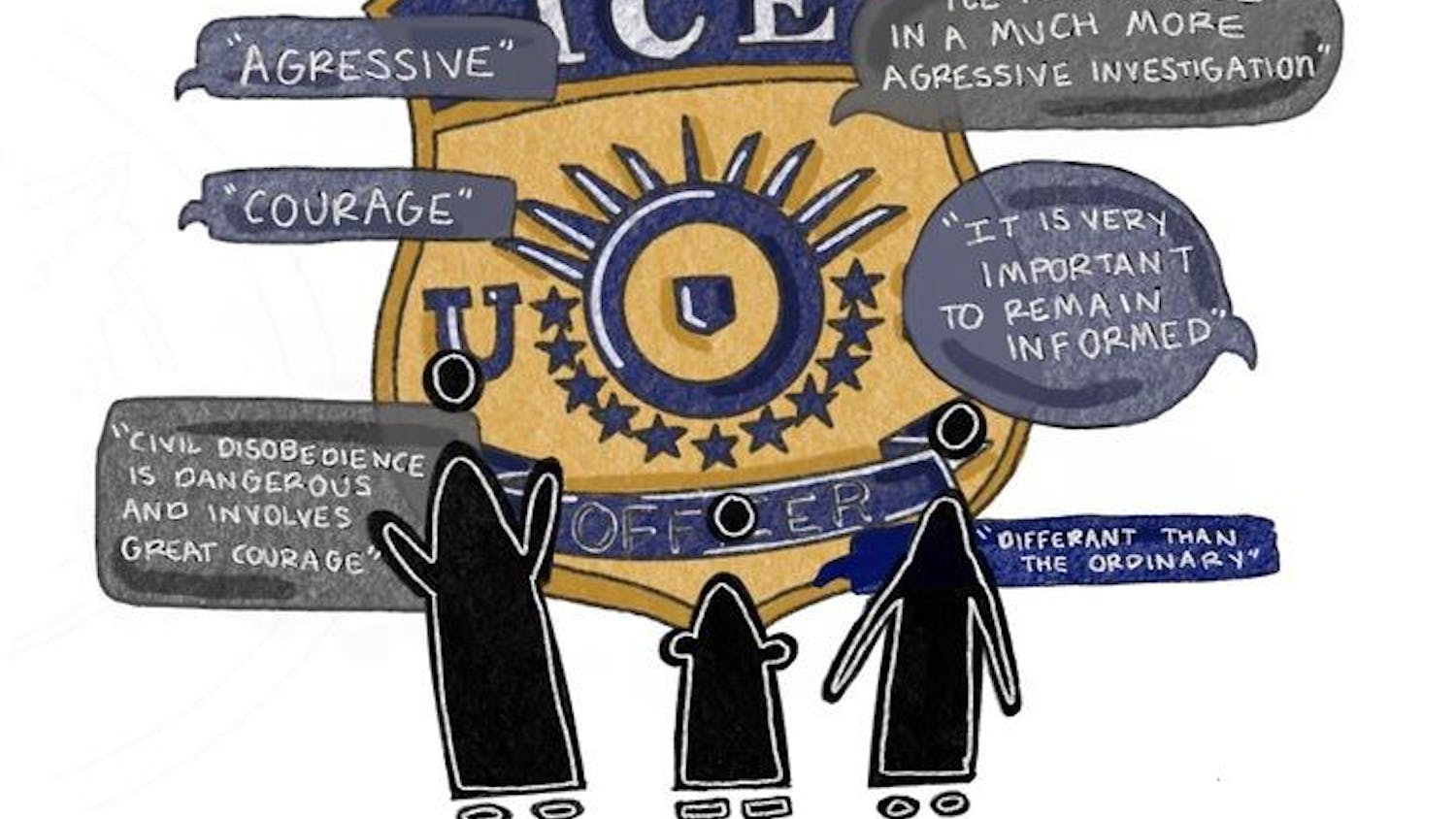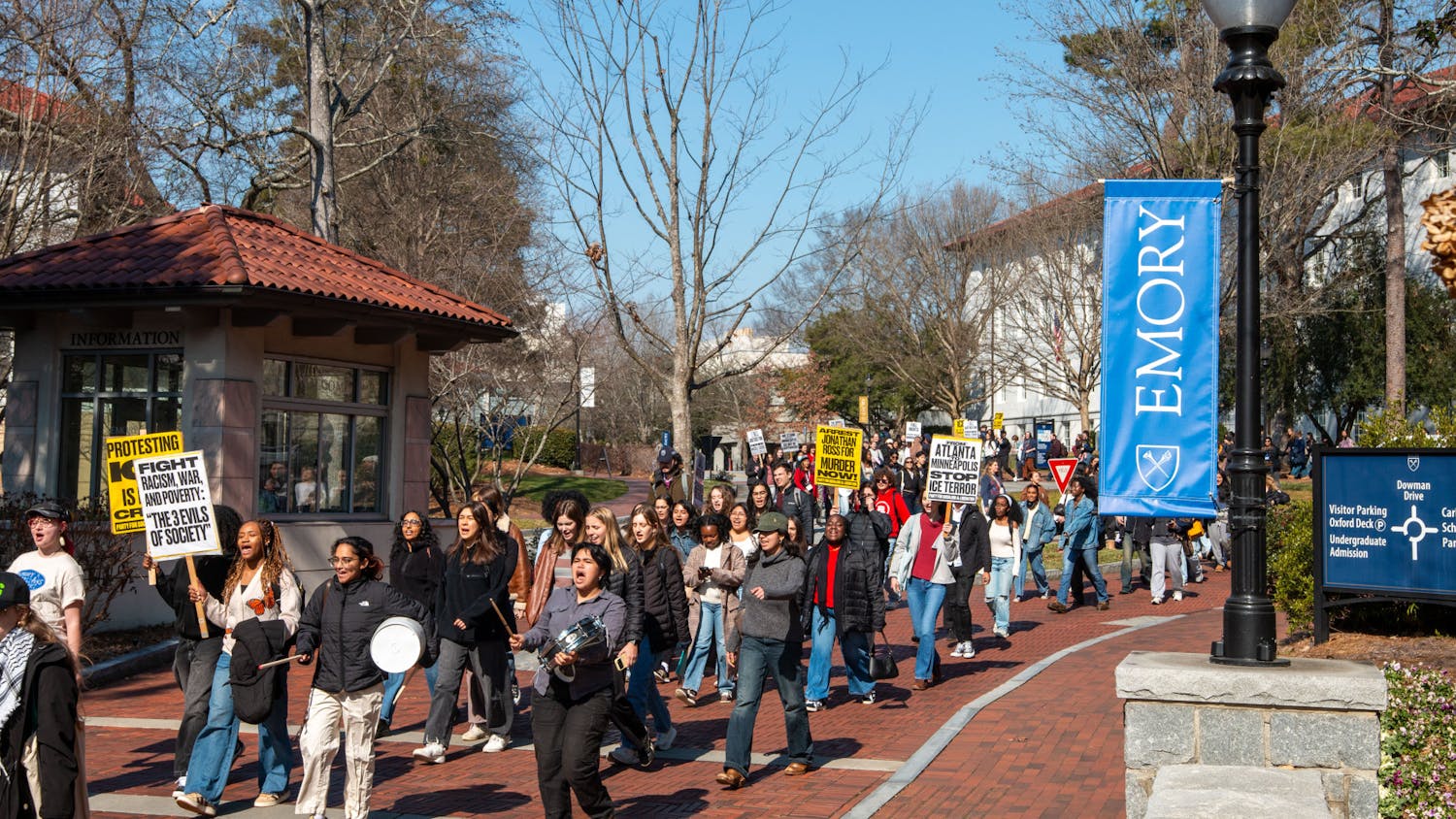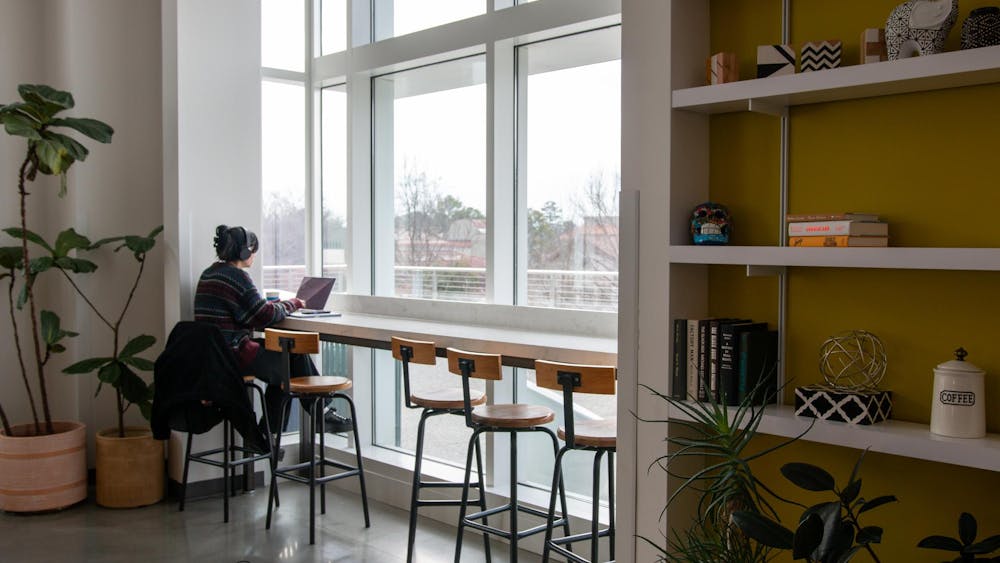By Rupsha Basu
News Editor
The Student Activities Fee (SAF) may increase as a result of a referendum from Thursday at 8 a.m. through Friday at 8 p.m., where the Emory student body will vote on whether to increase the SAF, which is included as a part of tuition for all students, from $89 to $110 per semester. Students are able to vote online here.
The referendum has had the highest turnout of any University-wide election in history, according to available records, Elections Board Chair and College junior Reuben Lack wrote in an email. As of Friday at 4:30 p.m., 3,924 people have voted, surpassing last year's Student Government Association (SGA) presidential race which had 3,323 votes, according to Lack.
Bill 48s108, proposed the SAF increase and passed on Monday, Nov. 17 by the SGA Legislature, outlines three incremental increases to the SAF that add up to $21 total.
First, the bill takes into account the already scheduled SAF increase for the 2015-2016 school year from $89 to $92, as per the automatic Cost of Living Adjustment (CoLA) to which the SAF is subject.
Second, according to SGA President and College junior Jon Darby and SGA Vice President for Finance and College senior Patrick O'Leary, both of whom co-authored the bill, an additional three dollars is needed to adjust for inflation.
Darby said that average inflation projections over the last few years show that the updated SAF should be $95; however, the CoLA sets it to $92, which Darby believes is insufficient.
According to the World Bank, average inflation was 1.6 percent in 2010, 3.2 percent in 2011, 2.1 percent in 2012 and 1.5 percent in 2013.
Current projections according to the Bureau of Labor Statistics for 2014 estimates inflation to be stable at 1.7 percent.
According to a Frequently Asked Questions (FAQ) document compiled by SGA, the CoLA has historically not been sufficient to account for inflation, which is why the additional increase was proposed.
SGA also passed an amendment to the CoLA adjustment, which previously increased at three percent every four years and has been changed to two percent every year.
Finally, the bill proposes that the last $15 increase be used to enact a number of SGA initiatives.
SGA has not specified the content of these initiatives, but the bill states that the programs will address "student experience equity programs created by the Student Legislature and Executive Board to enable full participation in academic and extracurricular activities regardless of socioeconomic status, enhanced programming and creation of a Meeting and Event Facilitation Fund."
Darby also said the Student Programming Council (SPC) recommended the $15 increase as a level of finances that would constitute a different class of performers.
"I will be voting yes because I want to help provide more programming of high quality to our students," College sophomore and SPC Special Activities Co-Chair and Technology Chair Ria Sabnis said.
"It's a shame that some really amazing programming ideas cannot come to life because of a lack of funds, but this referendum would change that, allowing organizations like SPC to help improve campus life and the Emory experience."
Darby said the $15 figure was produced because SGA evaluated the amount of money it would like to have on hand to give to student organizations.
SGA receives two percent of the SAF and allocates it to fund University-wide events and programs from student organizations.
Changes to the SAF requires a majority vote of the Legislature, a student body referendum and approval by the University Board of Trustees. In the event that all these bodies approve the increase, SGA will make an amendment to the Finance Code, according to Darby.
The document also references a "Student Experience Equity Fund," which is described as "a pool of money dedicated to subsidizing tickets, travel, conference fees and other extra- and co-curricular expenses for students who can't afford them."
The additional $15 increase to the SAF would be used to enact this program.
The document also states that, if the SAF change is approved, SGA will use the additional funds to reassess current software and technology and invest in software solutions that are more functional and convenient for students, based on recommendations from the Student Organization Management and Collaboration Technologies Task Force.
Some graduate representatives on SGA voiced concerns during the meeting about financial pressure on students as well as responsible allocation of the additional money.
However, these concerns were not related to the dollar increase of the SAF; the SGA Legislature reached a consensus that the dollar value of the increase is appropriate.
Some students also share these concerns.
"I'm not sure if I would vote yes or no because of the ambiguity of where the additional money will be used," College junior Casey Costello said.
"The potential ways SGA mentioned ... to provid[e] opportunities to those who can't afford it, are all good ideas, but since it is all up in the air, it's hard for me to fully support the bill."
Others, like College Council (CC) Vice President and College junior Alyssa Weinstein, see the benefit of the divisional councils having more money to fund student projects.
"From a College Council perspective, I think an increased SAF, if it were to increase the amount we had to give to students, that would help a lot of organizations better fund their events, pay for registration fees and travel for conferences and events," Weinstein said.
"I think it would be important to know whether or not financial aid would cover the SAF for students to make sure this increase wouldn't be a burden to students on financial aid, however."
For the referendum to pass, a majority of the student body must vote 'yes' to the proposed change.
If the referendum does not pass, the SAF will increase to $92, as was regularly scheduled from the CoLA.
SGA will strive to make more specific allocation projections in January, Darby said.
He added that he hopes the new SGA programs will take effect next year.
– By Rupsha Basu, News Editor
This article was updated on Friday, Dec. 5 at 4:34 p.m. to reflect an updated number of turnout votes and to show that the turnout was now the highest in University history.
Read More
Trending







